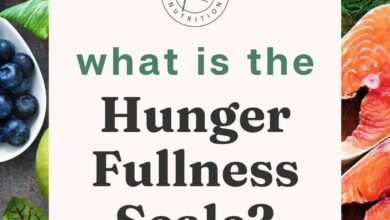3 Powerful Tips to Improve Your Digestion

It may be just as important to consider HOW you eat, in addition to WHAT you eat. Meal time has become a rushed experience in our busy lives. We are scarfing food down in the car, taking working lunches at our desks, or scrolling social media between bites. Did you know that your behaviors during meals can affect your digestion? Let’s learn more about how to improve your digestion!
The Gut-Brain Axis
Stress is a common culprit of digestive issues – or more specifically, the body is perceiving stress, which can lead to post-meal digestive issues. In fact, digestion begins in the brain. You may have heard of the gut-brain axis, which is the bidirectional communication between the central nervous system and the enteric (intestinal) nervous system.
The gut-brain axis is what links emotional and cognitive centers of the brain with intestinal functions. You have likely experienced this through getting a “gut feeling”, or “butterflies in your stomach”, or if you struggle with digestive issues when you’re nervous. The brain and gut are closely connected!
If you struggle with bloating, gas, constipation, acid reflux, or other digestive systems, it could be linked to your brain, and not necessarily the specific foods you’re eating. If the nervous system is in a stressed state (fight or flight) during a meal, the brain signals to the body that it must prioritize survival. The result is that digesting your meal will not be a priority, and you may end up with post-meal digestive symptoms!
Reducing Mealtime Stress
Research has shown that interventions focused on stress reduction and restoring the gut-brain axis have been highly effective in improving digestive symptoms. As Nutrition Therapist Masters, we coach not only on the optimal diet from a nutritional standpoint, but also on making sure our clients are eating in a calm state. This sets the stage for optimal digestion.
Here are 3 hacks to practice to make sure you digest your food properly:
1. Be present with your meal
We want to make sure our bodies and environment are calm during mealtime. It’s important to focus on the food in front of us as we eat.
- Put away distractions and avoid multitasking (working, answering emails, reading, watching TV, scrolling social media, etc.).
- Before you start your meal, take 5 deep belly breaths.
- If it’s in your practice, you can say a prayer or express gratitude for your nutritious meal, the farmers, the life of the animals, or anything else you want to focus on.
- Be present with the flavors, textures and smells.
2. Slow down and chew well
Chewing is the first step in processing your food. Make sure to chew your food well to avoid burping, bloating, gas, and other gut symptoms.
- Chew each bite at least 15 times – you want the food to be completely broken down before you swallow.
- Put your fork down between bites.
- Challenge yourself to eat more slowly with the goal of taking at least 20 minutes to finish a meal.
- Avoid drinking too much water, since it can impact the concentrations of stomach acid, digestive enzymes, and bile, which are all necessary for optimal digestion.
3. Be aware of your meal timing and habits
In addition to being present with your food and slowing down, meal timing and movement also play a role in digestion.
- Avoid eating too close to bedtime – ideally allow 3 hours to digest your dinner before heading to bed.
- Avoid snacking between meals – the gut resets between meals, allowing the intestines to “clean up”. Any food will disrupt the cleaning process. Aim for 3 to 4 hours between meals.
- Taking a brisk walk after meals can improve digestion and can also help regulate your blood sugar.
As Nutrition Therapist Masters, we work with each client to craft the most optimal individualized diet. And sometimes – even when we greatly improve the diet and address gut health imbalances – some clients will continue to experience digestive issues. This is when working on better mealtime behaviors and stress management is particularly important.
Mindful eating and improving mealtime behaviors takes practice – and it’s a practice we highly recommend to ensure optimal digestion!
Looking for more resources on the connection between stress and nutrition?
Nutrition Therapy for Stress and Anxiety
Stress, Anxiety and a Holistic Nutrition Approach: A focus on Blood Sugar, Digestion and the Brain
About the Author: Daina Rasutis is a graduate of NTI’s Nutrition Therapist Master Program. Her background in Environmental Engineering has allowed her to combine the best of science with a love for nutrition, sustainability & delicious food. Follow Daina’s nutrition practice, cooking creations and lifestyle tips on her website: www.tabletocrave.com
Source link
#Powerful #Tips #Improve #Digestion



